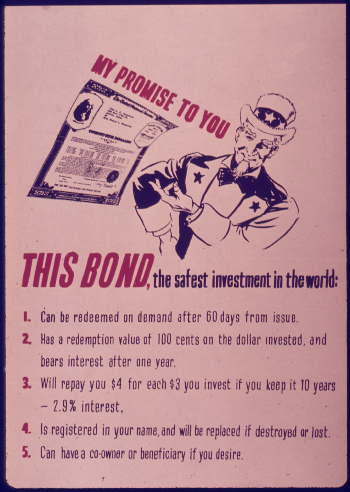Contents
Negotiations are to begin before past tariff concessions are modified or withdrawn. If formation of the customs union results in a member raising a bound duty, due account is to be taken of any reductions by other members that affect the same product. If such reductions do not provide compensation, the customs union will offer compensation through reduction of duties on other products. If the compensation is not accepted, the customs union can go ahead with the increases; affected WTO members then have the right themselves to respond by withdrawing substantially equivalent concessions. These commitments, or “bindings” may result initially from bilateral negotiations, in which the government concerned has agreed to another country’s request that it reduce the import duty on certain products. However, the commitments are then recorded in national schedules which, through the provisions of Article II, become part of each country’s obligations under the GATT and, because of the operation of the MFN rule, apply to imports from any member.
- That role has now formally been taken over by the WTO.
- From 1947 to 1994, GATT also served another role — it was a de facto international organization for negotiating and administering the multilateral trade rules.
- High domestic and trade subsidies in E.U., U.S., Japan.
- After the forming of GATT, it actively act perform is function in worldwide commerce, it decreased the tariffs by holding several rounds of multilateral negotiations which held for months and even years for each rounds.
- The WTO is monitored on an annual basis by the UN’s High-Level Political Forum on its efforts to achieve SDGs related to trade.
- Also, India has a huge domestic untapped market.
By “multiple currency practices” is meant practices by governments or sanctioned by governments. As in many other cases in customs administration, a contracting party may require reasonable security for the payment of anti-dumping or countervailing duty pending final determination of the facts in any case of suspected dumping or subsidization. There is need for a rapid and sustained expansion of the export earnings of the less-developed contracting parties. Representatives of the contracting parties shall meet from time to time for the purpose of giving effect to those provisions of this Agreement which involve joint action and, generally, with a view to facilitating the operation and furthering the objectives of this Agreement.
However, trade in the affected product which has taken place under non-contractual preferences shall also be taken into account if the trade in question has ceased to benefit from such preferential treatment, thus becoming MFN trade, at the time of the negotiation for the modification or withdrawal of the concession, or will do so by the conclusion of that negotiation. The application of a measure consistent with the terms and conditions of the waiver may invoke the provisions of Article XXIII gatt was formed to fill up the gap of of GATT 1994 as elaborated and applied by the Dispute Settlement Understanding. Customs unions and constituents of free-trade areas shall report periodically to the Council for Trade in Goods, as envisaged by the CONTRACTING PARTIES to GATT 1947 in their instruction to the GATT 1947 Council concerning reports on regional agreements (BISD 18S/38), on the operation of the relevant agreement. Any significant changes and/or developments in the agreements should be reported as they occur.
Such products shall also be exempt from all other duties or charges of any kind imposed on or in connection with the importation in excess of those imposed on the date of this Agreement or those directly and mandatorily required to be imposed thereafter by legislation in force in the importing territory on that date. The provisions of Article II, combined with technical rules in Article XXVIII on modifying schedules, provided the basis under which most of the developed countries took part in successive rounds of GATT negotiations to reduce their tariffs, binding their results in progressively more constraining schedules. Developing countries to a great extent stood aside from this process, and many had no schedule of bindings at all. Under the WTO all members are required to have schedules, and the proportion of products subject to bindings is generally much higher than before.
WTO’s dispute settlement mechanism
India’s agriculture sector accounts for around 18 per cent of its GDP and 56 per cent of its workforce. Most of the members of this workforce are subsistence farmers, working on land holdings of less than 2 acres, many are not even landowners, and mere sharecroppers. Even an incremental surge in agricultural imports could affect the lives of millions of these farmers.

On a yearly basis, each Member shall make available to the Secretariat a consolidated notification, including all changes in laws, regulations, policy statements or public notices, for examination by Members. Notifications shall include full information, as far as possible, at the tariff-line level, on the type of measures applied, the criteria used for their administration, product coverage and trade flows affected. C) and d) The third and fourth elements of the GATT 1994 are agreements reached in the Uruguay Round.
SDG8: Decent work and economic growth
However, many a time the draft proposals giving special concession to developing countries have not been accepted in the WTO meetings. In the year 2003, Harbinson’s draft which called for steep reductions in tariffs and subsidies by developed countries was objected by the EU and Japan. The negotiations during 2008 also could not move forward because of the differences between developed and developing countries demands21. All the developed countries, and particularly the US, the EU and Canada, had imposed a wide range of conditions on market access and applied numerous domestic regulations to create barriers to the entry of skilled natural persons of developing countries into their markets. Further, under mode 4, an individual could not apply for any work in his own right on an individual basis.

Wherever reference is made in this Agreement to the contracting parties acting jointly they are designated as the CONTRACTING PARTIES. To prevent any contracting party from taking any action in pursuance of its obligations under the United Nations Charter for the maintenance of international peace and security. A contracting party, the economy of which is in the process of development, but which does not come within the scope of sub-paragraph above, may submit applications to the CONTRACTING PARTIES under Section D of this Article. The provisions of this paragraph shall not require any contracting party to disclose confidential information which would impede law enforcement or otherwise be contrary to the public interest or would prejudice the legitimate commercial interests of particular enterprises. The CONTRACTING PARTIES shall seek co-operation with the International Monetary Fund to the end that the CONTRACTING PARTIES and the Fund may pursue a co-ordinated policy with regard to exchange questions within the jurisdiction of the Fund and questions of quantitative restrictions and other trade measures within the jurisdiction of the CONTRACTING PARTIES.
Analysis of the role of WTO in international trade
It was hoped that the ITO could be run alongside the World Bank and the International Monetary Fund . More than 50 nations negotiated ITO and organizing its founding constitution, but after the withdrawal of the United States these negotiations collapsed. The GATT was first discussed during the United Nations Conference on Trade and Employment and was the end result of the failure of negotiating governments to create the International Trade Organization . It was signed by 23 nations in Geneva on 30 October 1947, and took impact on 1 January 1948. The GATT, which was set up in 1947, was envisaged as a temporary measure, until ratification of the Havana Charter. The exception provided for in this sub-paragraph extends to any commodity agreement which conforms to the principles approved by the Economic and Social Council in its resolution 30 of 28 March l947.
On the other hand, it is not intended that the scope of the negotiations should be such as to make negotiations and agreement under Article XXVIII unduly difficult nor to create complications in the application of this Article in the future to concessions which result from negotiations thereunder. It would therefore not be appropriate for the CONTRACTING PARTIES to determine that more than one contracting party, or in those exceptional cases where there is near equality more than two contracting parties, had a principal supplying interest. Negotiations under this Article may be carried out on a selective product-by-product basis or by the application of such multilateral procedures as may be accepted by the contracting parties concerned. Such negotiations may be directed towards the reduction of duties, the binding of duties at then existing levels or undertakings that individual duties or the average duties on specified categories of products shall not exceed specified levels.

In particular, no penalty in respect of any omission or mistake in customs documentation which is easily rectifiable and obviously made without fraudulent intent or gross negligence shall be greater than necessary to serve merely as a warning. A contracting party shall, upon request by another contracting party or by the CONTRACTING PARTIES, review the operation of its laws and regulations in the light of the provisions of this Article. All charges and regulations imposed by contracting parties on traffic in transit to or https://1investing.in/ from the territories of other contracting parties shall be reasonable, having regard to the conditions of the traffic. In the case of the contracting parties named in Annex G, the date of April 10, 1947, referred to in subparagraph and of this paragraph shall be replaced by the respective dates set forth in that Annex. In the determination of which Members have a principal supplying interest or substantial interest, only trade in the affected product which has taken place on an MFN basis shall be taken into consideration.
The “GATT 1994” is the basic set of trade rules, largely taken over from the GATT 1947, that in conjunction with the other agreements in Annex 1A to the WTO agreement now represents the goodsrelated obligations of WTO members. From 1947 to 1994, GATT also served another role — it was a de facto international organization for negotiating and administering the multilateral trade rules. That role has now formally been taken over by the WTO. The fact that there is a single set of rules applying to all members greatly simplifies the entire trade regime.
These training and technical assistance courses were made in accordance with each country’s specific needs and requirements. GATT was signed in 1947 and lasted till 1993, when it was replaced by the World Trade Organization in 1995. The authentic GATT text continues to be in effect beneath the WTO framework, subject to the modifications of GATT 1994. This principle is named most-favoured-nation remedy . It is so essential that it is the first article of the General Agreement on Tariffs and Trade , which governs commerce in goods.
Why was GATT replaced with WTO?
The “reasonable length of time” referred to in paragraph 5 of Article XXIV should exceed 10 years only in exceptional cases. In cases where Members parties to an interim agreement believe that 10 years would be insufficient they shall provide a full explanation to the Council for Trade in Goods of the need for a longer period. For the purposes of this Understanding, the provisions of Articles XXII and XXIII of GATT 1994 as elaborated and applied by the Dispute Settlement Understanding shall apply.
If any contracting party has not accepted the Havana Charter by the date upon which it enters into force, the CONTRACTING PARTIES shall confer to agree whether, and if so in what way, this Agreement in so far as it affects relations between such contracting party and other contracting parties, shall be supplemented or amended. Pending such agreement the provisions of Part II of this Agreement shall, notwithstanding the provisions of paragraph 2 of this Article, continue to apply as between such contracting party and other contracting parties. If agreement between the contracting parties primarily concerned is reached in the negotiations, the provisions of paragraph 3 of this Article shall apply. Any substantial change in the plan or schedule referred to in paragraph 5 shall be communicated to the CONTRACTING PARTIES, which may request the contracting parties concerned to consult with them if the change seems likely to jeopardize or delay unduly the formation of the customs union or of the free-trade area.
Therefore, making available the skills of engineers and scientists for research and development needs to be looked upon during further negotiation on Doha round. Developing countries should be provided flexibility in keeping domestically sensitive tariff lines as unbound. High domestic and trade subsidies in E.U., U.S., Japan. “Reactive” support by competitive producers caused by low prices.
WTO remains in constant touch with various non-governmental organisations , media, parliamentary members, other international organisations, and the general public in order to get their opinions on various aspects of WTO and ongoing negotiations and maintain their cooperation in the international trading system. In the numerous rounds prior Uruguay Round, there have been a greater than 21% tariff minimize achieved in every round. In the Uruguay Round, the individuals had made an settlement which included 550 pages of tariff discount on 85 percent of world trade.
Together, these three agreements cover all three primary areas of trade handled by the WTO. First of all, WTO promotes the establishment of world commerce liberalization and economy globalization. After WTO was established, the world market has experienced decline in tariff ranges, WTO members skilled a mean of forty% decline in tariff rate. For example, within the year of 1999, tariff rate of developed nations dropped from 6.three% to 3.9%, imported duty-free manufactured goods from increased from 20% to forty three%, whereas excessive tariffs of imported manufactured goods reduced to 5%.
